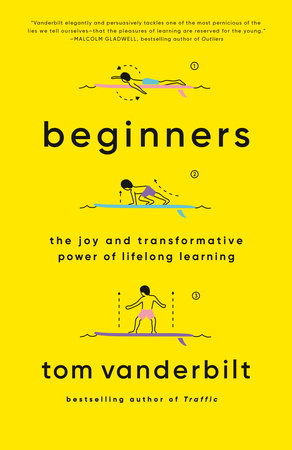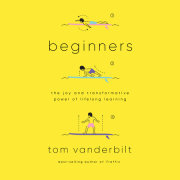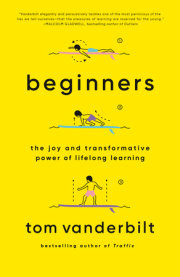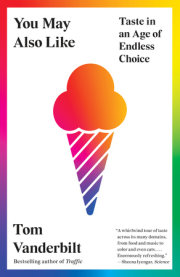PROLOGUE
THE OPENING GAMBIT
One Sunday morning in a crowded room in New York City, I sat down to a chessboard with my heartbeat elevated and my stomach on the boil.
My opponent and I shook hands, as is the custom. Apart from stating our names, which we duly jotted in our notation pads, we exchanged no words. While I set the time on the clock—twenty-
five minutes for each player—he methodically centered each piece on its square.
Nonchalantly, as if to appear faintly bored, I did the same. I tried to arrange my pieces even more symmetrically, as if seizing some minute advantage (a ploy undermined by momentary panic that I’d incorrectly placed the bishop and knight). An expectant hush fell about the room as we waited for the tournament director to give the start signal.
As we sat, I tried to size my opponent up. He idly rolled a pencil between his fingers. His eyes drifted to the neighboring tables. I peered at him with what I hoped looked like remorseless pity. I was trying to project as much feral menace as one could while sitting in a library chair. I wanted to channel a feeling that had been described to me by Dylan Loeb McClain, the former chess columnist for The New York Times, when, in 1995, he’d played the then world champion, Garry Kasparov, in an exhibition game.
“I didn’t feel like he wanted to beat me,” McClain said. “I felt like he wanted to reach across the board and strangle me.” He intuited that Kasparov, hunched like an angry bear and channeling “unbelievable psychic ferocity,” would not be happy gaining some minor positional advantage, or even simply winning. Something “more personal, more disturbing” seemed to be driving him.
This is a common sensation in the world of chess. “I like the moment when I break a man’s ego,” the mercurial champion Bobby Fischer once put it.
I looked again at my opponent. Could I, through tactical finesse and the withering power of my merciless gaze, slowly dismantle the core of his being?
Just then, a woman appeared at his side, bearing a small carton of chocolate milk. She kissed him on the head, said, “Good luck,” and flashed me an owlish smile. Ryan, my opponent, was eight years old. With admirable composure, and an occasional sniffle, he dispatched me somewhere after the thirtieth move. I congratulated him, and as I went to inform the tournament director of the result, I saw him in the hallway, ego intact, proudly relaying the news to his mother.
Ryan and I were among those gathered for a Sunday morning “Rated Beginner Open” at New York City’s Marshall Chess Club. Occupying several floors of a historic town house on one of Greenwich Village’s most handsome blocks, the Marshall is a delightful anachronism, a relic of the days when any number of chess teams, collegiate and otherwise, battled across the region, their exploits recorded in the sports sections of newspapers.
That it exists here today, nestled amid some of the most expensive real estate in the country, is only thanks to a plot twist worthy of Dickens.
In 1931, at the height of the Depression, a group of wealthy benefactors, chess enthusiasts all, bought the building on behalf of the club’s namesake, Frank Marshall. A grandmaster and U.S. champion who’d once operated an oceanfront chess emporium in Atlantic City—where he sometimes played passersby for money—Marshall had for decades piloted his eponymous club through a number of iconic Manhattan locales, from Keens Chophouse to the Chelsea Hotel. The Marshall now had a home for life.
The place has lost a bit of its old-school luster—there are no longer jacketed waiters to serve coffee or tea—but playing chess at the Marshall today, you still feel you’re in some Gilded Age temple to the Game of Kings. History envelops you: busts of famous grandmasters; vintage photographs of team champions; the very table that Magnus Carlsen, the current world champion, sweated over as he defended his title against Sergey Karjakin in 2016.
The Marshall is no museum, though. Entering the place on a weekend, during a big tournament, is like walking into a human-powered data center: rows and rows of processors, silently calculating, thrumming with intensity, generating heat and a persistent tang of nervous perspiration.
The Sunday Beginners tournament was strictly small stakes, for players rated under 1200, or having no rating at all. Most grandmasters have ratings above 2500; I had the newbie rating of 100.
My day had started promisingly. Against my first opponent, John, a gray-haired
man with the look and quiet gravity of a scholar, I’d initially fallen behind on “material,” as pieces are called in chess. As the game drew on, he tried to press his advantage. And yet I kept fighting, finding inventive obstacles to his victory. To each of these he would respond with a small, tired sigh. I could feel his discomfort, and with each sigh I seemed to grow in strength.
Then, with my own king nearly surrounded, I spotted the chance for a checkmate. I just needed him to not see it. There is an old expression in chess that the winner is the player who makes the next-to-last mistake. And indeed, my opponent played offense when he needed to be playing defense, moving a pawn toward what he assumed was my demise. As I slid my rook into position, trapping his king along the “A file” (the first vertical row on a chessboard), a slow, queasy realization spread across his face.
My next opponent, Eric, was a serviceman on leave from Afghanistan, where he spent a lot of downtime playing online chess. He knew he’d be coming through New York on a visit stateside and had dedicated time for a Marshall pilgrimage. He looked a bit like the actor Woody Harrelson: buzz cut, grizzled, with a thousand-yard stare. Our match was tense and close fought, until he captured one of my rooks with a bishop pin. After I resigned, he looked relieved and said I had played much better than my rating would indicate—the first words he had uttered.
That morning’s grouping, everyone from U.S. Army Rangers to AARP members to fidgety kids, was typical of the Marshall’s Beginners tournament. The age range at the Marshall must have spanned six decades, but we were all, in the eyes of chess, beginners.
There is a wonderful purity to chess’s rating system, which renders distinctions like age largely irrelevant. Chess is one of the few skilled endeavors in which children can acquire a proficiency on par with adults—or above. There are twelve-year-olds who will innocently skin you alive.
There was one child in the Sunday tournament at the Marshall in whom I had a particular interest: my own daughter. We weren’t paired against each other—though that moment would come—and we took very different paths that morning. She placed near the top and collected a check for eighty-four dollars, money that was immediately plowed into Beanie Babies and glitter putty at the corner toy shop.
And as I heard her gleefully report to her grandparents on the phone, later that day, “My dad finished, like, fortieth.” Out of fifty-one.
What had I gotten myself into?
Copyright © 2021 by Tom Vanderbilt. All rights reserved. No part of this excerpt may be reproduced or reprinted without permission in writing from the publisher.








